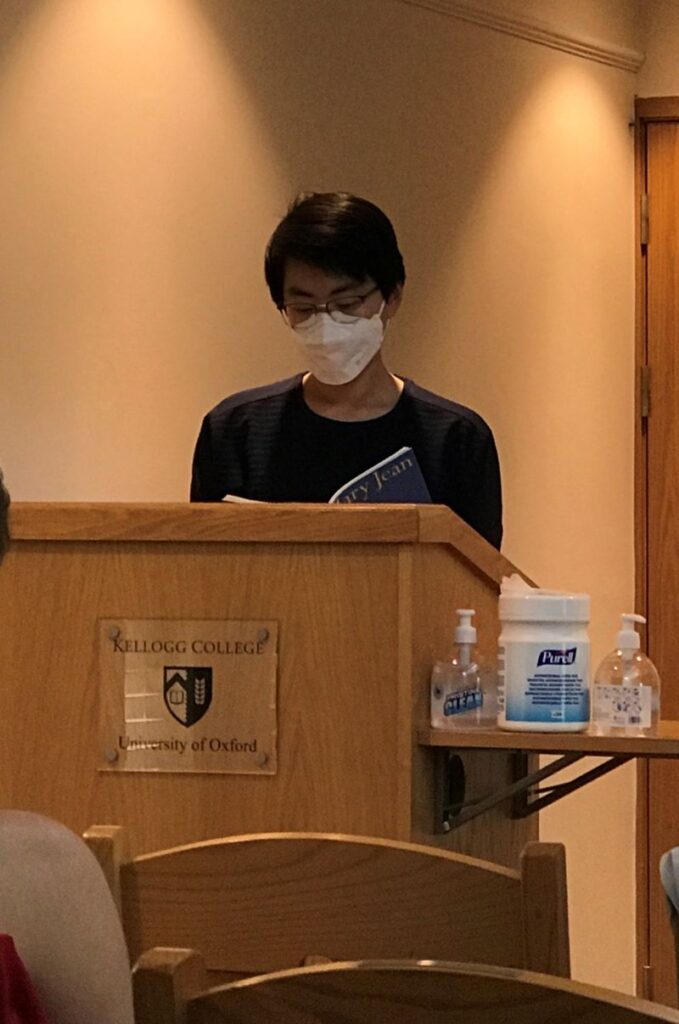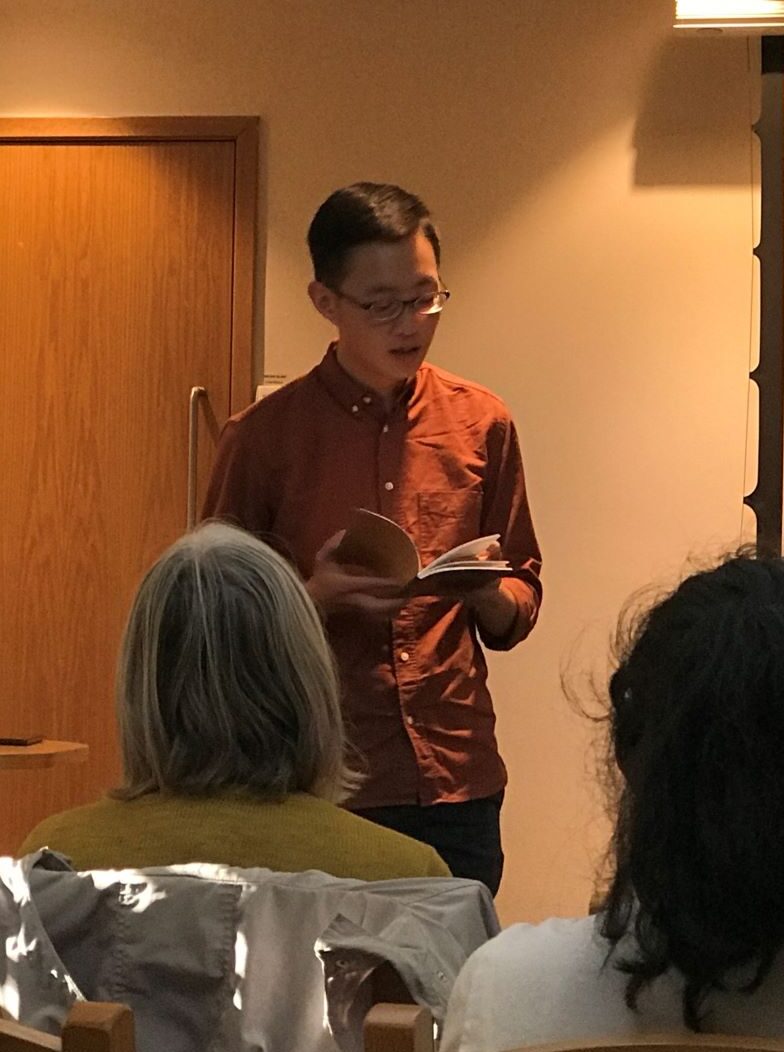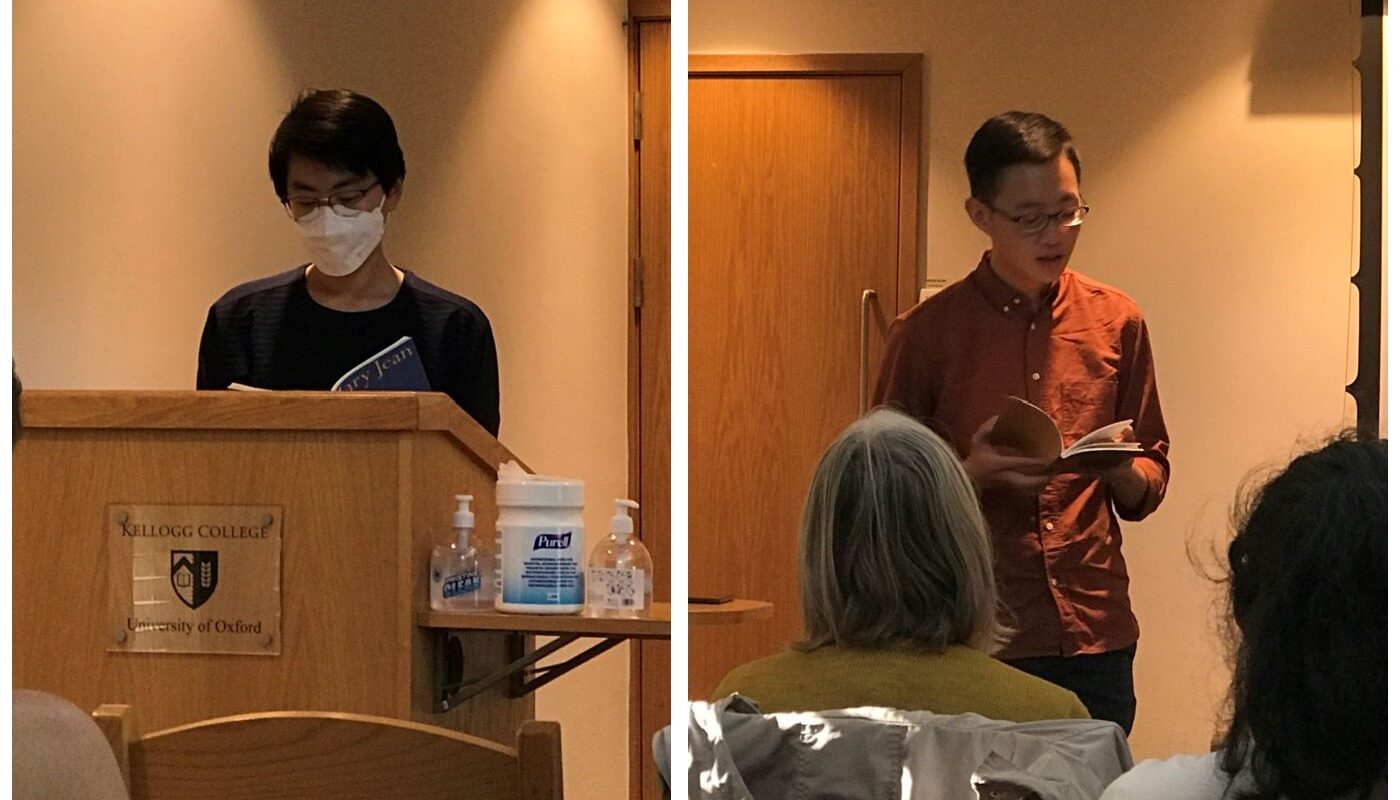On Family and Flèche: Theophilus Kwek and Mary Jean Chan Read at Kellogg College
Ann Ang
19 May 2022 – an appreciative audience was treated to a lively reading from poets Theophilus Kwek and Mary Jean Chan, followed by a discussion of their perspectives on writing with Niall Munro, Director of the Oxford Brookes Poetry Centre.


Theophilus Kwek (Photograph: Ann Ang)
When introducing her poem “(Auto)biography,” Chan remarked how many assume that women’s writing would be “diary-istic” and “direct.” Her debut full-length collection, Flèche (Faber & Faber 2019) challenges such attitudes by inhabiting her mother’s voice and disapproval of her queerness. This poem, among others, fictionalises her mother’s life alongside Chan’s own. Describing her collection as an attempt to bring “queer shame and queer joy into the same space,” Chan also views Flèche as “a complex love letter to her mother” who was Shanghainese and faced both linguistic and cultural difficulties on her arrival in Chan’s birth city of Hong Kong. Now based in Oxford, many of Chan’s poems also relate to the body as both intimate space and weapon; flesh and flèche, in its negotiation of racial and gender boundaries. Flèche refers to an offensive move in the sport of fencing, which the poet practised when she was younger. Chan’s collection won the Costa Poetry Prize in 2019.
Besides being the author of four poetry collections, Kwek is also an editor and translator. His pamphlet, The First Five Storms (Smith|Doorstop, 2017), was shortlisted for the Michael Marks Poetry Award and won the inaugural New Poets’ Prize. Reading from his latest collection Moving House (Carcanet 2020), Kwek impressed listeners with his candour and the deft, meditative rhythms of his writing. The title poem arose from the sense of loss and dissonance he experienced when his parents relocated the family home without his knowledge. Much of Kwek’s verse refracts a charged sense of leave-taking and ethical reckoning. “Lucky” recounts a fatal road accident in Singapore involving Filipina domestic workers, who have few public spaces to meet on their rest-days. Similar feelings pervade his time in Oxford, as with “24.6.16”, which was prompted by the return of the red kite to the English countryside after being hunted to near-extinction. When asked about the question of appropriation in poetry, as distinguished from fiction, Kwek responds by saying that “family is where ‘welcome’ is despite moving house”, and that verse weaves a collective story when “we all look at the elements that we reflect in each other.” For Kwek, a poem moves beyond appropriation “to bear a gift without staking a claim on the story.”
Cite this: Ang, Ann. “On Family and Flèche: Theophilus Kwek and Mary Jean Chan Read at Kellogg College.” Postcolonial Writers Make Worlds, 2022, https://writersmakeworlds.com/essay-kwek-chan-reading. Accessed 17 May 2023.
